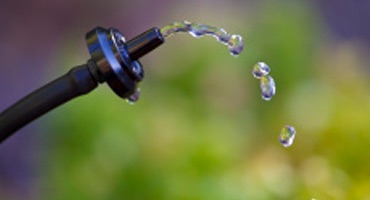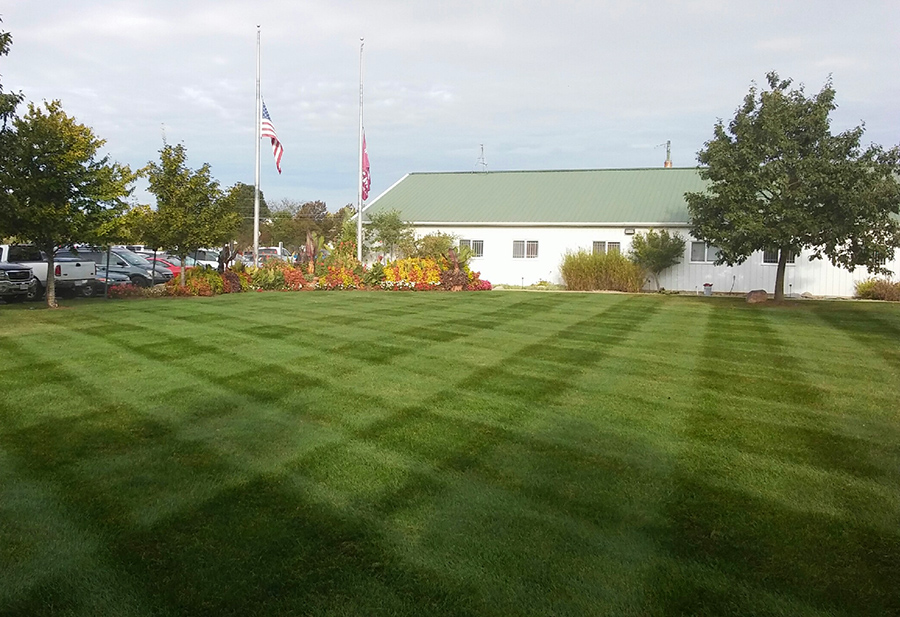Green & Sustainable
Caring for Earth’s Gifts
The environments we experience on our beautiful Earth are precious — and so is your property and those who live/work/play on it. At EMI, we are continuously conscious of available green practices and water-saving techniques to position ourselves as responsible comrades to this Earth. Some of our environmentally sensitive practices are noted below.

Sustainable Landscaping Design Approaches
We proactively choose plant life for our designs that will continue to thrive with little maintenance, chemicals and little watering.
- Using easy-to-prune plants with little or no use of fertilization
- Considering potential harm to the environment when adding builds
- Utilizing material options that are specific to the natural environment of the area
- Choosing pest resistance/disease resistant to eliminate the need to spray
- Planting species that are native to area (thus less water usage)

Water Management
We strive to use water more intelligently, thus our practices decrease unnecessary usage.
- Working with weather satellites
- Xeriscaping (landscaping and gardening that reduces or eliminates the need for supplemental water from irrigation)
- Using water-saving irrigation heads
- Using below-grade emitters
- Installing drip irrigation when/where appropriate
- Installing rain sensors (to avoid watering while raining)
- Adjusting properly to avoid watering of sidewalks and other unnecessary areas
- Utilizing rain gardens to capture water naturally
Green Material Usage—We ARE Environmentalists

Our Integrated Pest Management (IPM) practices can bypass the use of pesticides using natural effects.
- WHAT IS IPM? It is an ecosystem-based strategy that focuses on long-term prevention of pests or their damage through a combination of techniques such as biological control, habitat manipulation, modification of cultural practices, and use of resistant varieties. According to the EPA, it is described as an effective and environmentally sensitive approach to pest management that relies on a combination of common-sense practices. IPM programs use current, comprehensive information on the life cycles of pests and their interaction with the environment. This information, in combination with available pest control methods, is used to manage pest damage by the most economical means, and with the least possible hazard to people, property, and the environment.
- The IPM approach can be applied to both agricultural and non-agricultural settings, such as the home, garden, and workplace. IPM takes advantage of all appropriate pest management options including, but not limited to, the judicious use of pesticides. In contrast, organic food production applies many of the same concepts as IPM but limits the use of pesticides to those that are produced from natural sources, as opposed to synthetic chemicals.
EMI recycles 100% of the yard waste collected and composts it into useable mulch/soil.
Last year:
- 1,300 cubic yards of soil last year was generated
- 9,000 cubic yards of compost from shrub clippings, trimmings etc. was accumulated
- The autumn leaf compost alone totaled 3,000 cubic yards!
- Our office recycles paper and plastics
- We keep products and materials sourced locally to save transportation energy
- Our mower fleet has been converted to electronic fuel-injected mowers (reducing fuel usage by 20%)
- We target only what absolutely needs chemical usage rather than applying to a whole area
- We make Organic fertilizers available
- Our Brine Applications (to prevent snow accumulation) act as effective treatment with less product use
- Transportation Route optimization for efficiency (utilizing GPS tracking) – reducing idle time and fuel consumption
